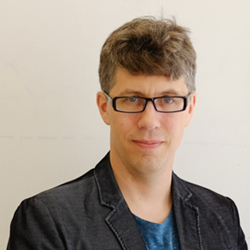Faculty Directory
Konrad KordingEducation
Ph.D. Physics, Federal Institute of Technology, Zurich, 2001
Biography
Konrad Kording runs the Bayesian Behavior lab. Konrad is trying to foster an environment of creativity in which important problems get solved in interesting ways and unimportant problems get solved in fun ways. Konrad believes in the role of playful approaches towards science. He also believes that ultimately we need to solve important medical problems. His lab focuses on Big Data approaches to neuroscience. Massive amounts of data exist in neuroscience and work in the lab is focused on making sense out of such datasets (and obtaining such sets).Research Interests
The research of the Economics of Movement group shows that movement and movement learning are similar in many respects. Our Sensors (Eyes, Ears, Skin etc) are not perfect but are noisy. Moreover, our muscles are noisy and if we try to do the same movement over and over it will be different each time. This means that if we make a movement, say swing a golf club, we will have uncertainty in the potential movement outcomes. Our group studies how people make movement decisions in the presence of such uncertainty. Our research has three main thrusts. (1)We study experimentally how people move and how their movements are affected by uncertainty. (2) We build computational models using Bayesian statistics to calculate how people could move optimally or learn to move optimally. (3) We build Bayesian Algorithms to solve problems that we find interesting. For example we analyze how neurons are connected in the nervous system. (4) We use mobile phone and gaming technology to improve rehabilitation and to improve diagnoses. The main thrust of our current research is to allow for better rehabilitation procedures through an understanding of motor learning.
